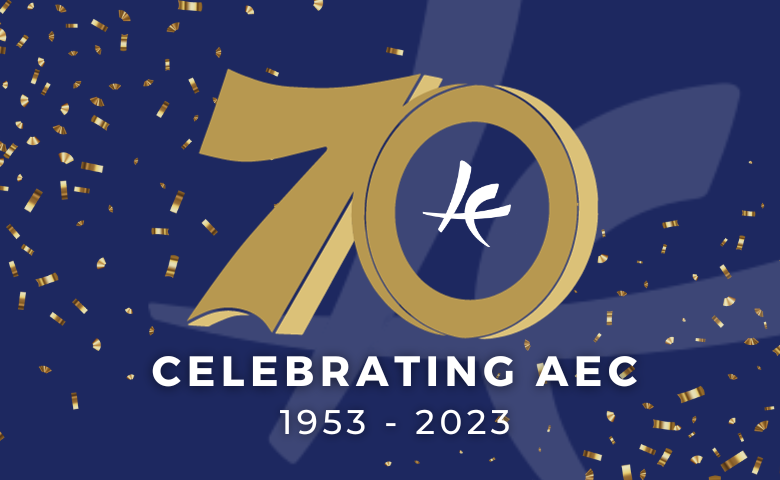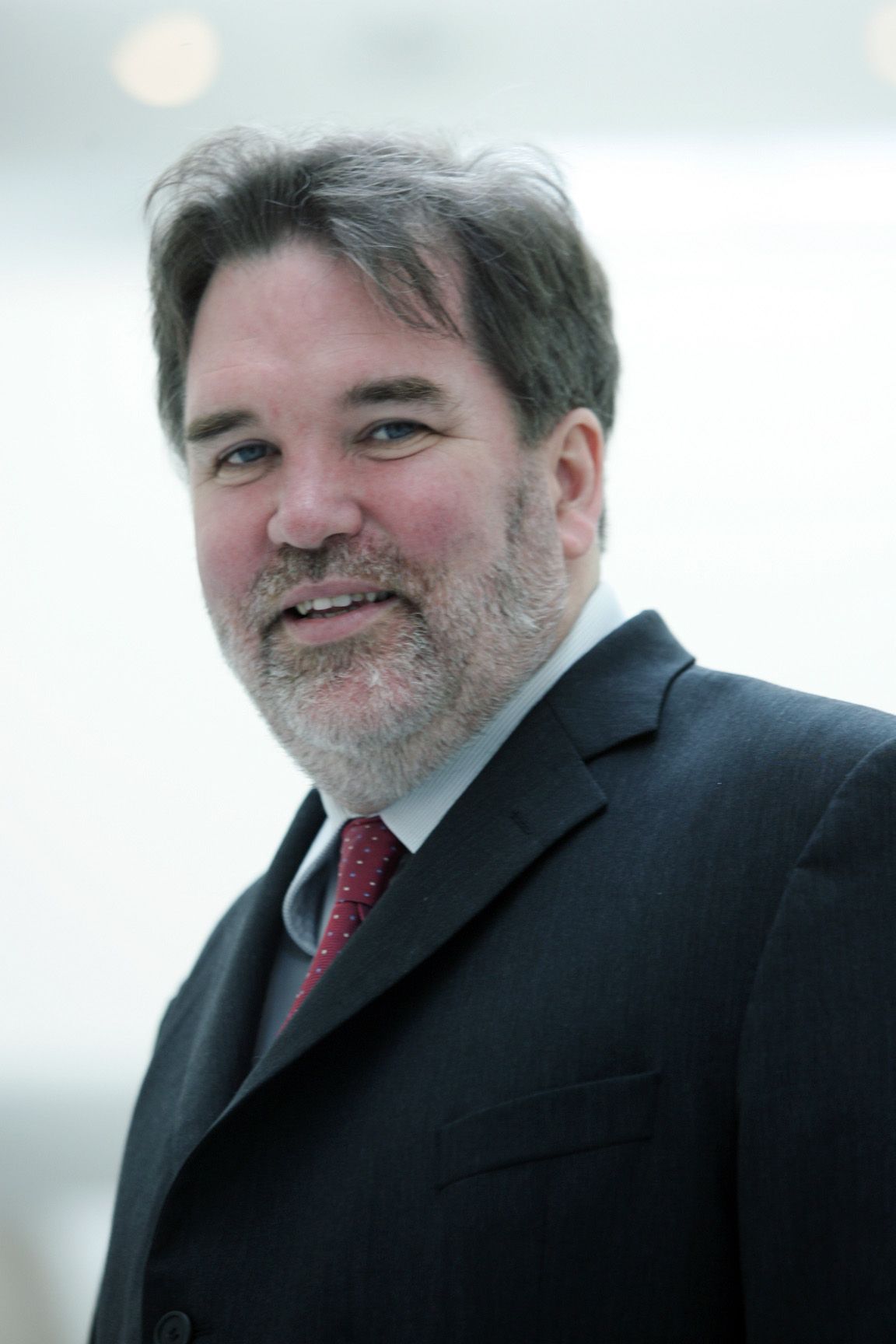I write this reflection on the AEC, seeking to offer both a personal and global perspective, while attending the Performers(‘) Present International Artistic Research Symposium – Flowing Resonances – at the Yong Siew Toh Conservatory in Singapore. At dinner just now, I was beside Jeremy Cox, former AEC CEO with Mist Thorkelsdottir, former MusiQuE Board member, opposite me alongside Anothai Nitibhon, my replacement both on the AEC Council and as President of the Southeast Asian Directors of Music. Such symposia as these have much to owe to the AEC, just as the AEC has so clearly become more aware of the world at large through its more conscious engagement with the wider globe.
As an Australian, I guess I have always brought an outsider’s (non-European) perspective to AEC, even while working at Guildhall in London either side of the turn of the century, from where I first became involved, alongside Ian Horsbrugh, the AEC President of the time who was also my boss in London. Thanks to Ian’s forays seeking more global connection for the AEC, I remember meeting Simone de Haan, then Director of the Queensland Conservatorium which I now lead. While he had come to Vicenza, the more memorable interchanges in those times were often informal as evidenced then. We undertook an impromptu excursion to nearby Venice with a mix of multiple nationalities, including AEC officers and other European leaders. It was unusual then to have many from outside Europe but, with the Mundus Musicalis project, there was the beginnings of an emerging inclusivity agenda and those fresh voices were much valued. From these days, too I remember being opened to a wider musical world with conversations with Gottfried Scholtz introducing me to his awareness of the music of Iran, showing a breadth of awareness which was not then so usually part of the European dialogue.
From such moments, lifetime friendships have formed and movements for change have emerged organically. There was perhaps a lighter touch back then – perhaps more wine and song than now and more intimate groupings – but there has always been a sense that space for reflection, through an organisation whose business it was to gift and care for the opportunity to reflect, has been critical in enabling forward movement.
They were optimistic times, rich in a desire to make a difference, whether through exciting and thought-provoking conversations with Martin Prchal (then AEC CEO) and Johannes Johansson (AEC President) or with more informal episodic moments such as through excursions in Palermo (still remembering Mist Thorkelsdottir, Jeff Sharkey and Philippe Dinkel in a conversation around control and freedom in strategic planning) or outside Oviedo in the mountains with Sean Gregory and Helena Gaunt (we worked together but there was never such time in London).
With the respect I felt for such people and the AEC, these were the people I turned to for advice when first establishing what was to become SEADOM. Johannes Johansson’s visit to Singapore in 2009 was a highlight as was Martin Prchal’s a few years later in Kuala Lumpur, showing the commitment of AEC for a broader awareness and deeper engagement was real and much appreciated. It was with Johannes, too, that I first visited NASM, thus witnessing some of the earlier flowerings there of curiosity for Europe’s new doctoral programs with their focus on artistry. Artistic Research, as advocated by the AEC did much to energise fresh curiosity in Australia and Southeast Asia, with voices from both continents welcomed into the group. To have lost such mentors as Ian and Johannes so early was tragic so I do wish here to bear witness to their personal ambitions to bring a more global awareness to the AEC. They were the best of mentors, deeply engaged in sewing seeds for more global engagement.
Fast forward to around 2016 with the first sessions which asked members to suggest fresh topics for discussion. Half as a joke, I offered, “What does Europe think when they think of the rest of the world? And what does the rest of the world think of Europe?“, little expecting I would be asked to lead such a session. As a measure of how much more open the dialogue has become, where that session was attended by Associate Members (i. e. beyond Europe), the equivalent session last year was beautifully balanced and so much more aware. Soon after, I found myself replacing Don McLean who had been longstanding as Associate Members representative on the AEC Council. Don had been one of the earliest of intercontinental members and I always found his energy, clarity of insight and willingness to embrace intersections of arts and technology so refreshingly open. The broader reach brought also the comparison with music conservatories who were embedded in universities, more the norm outside Europe than within. By these times, too, representation from the world had become wider and the questions this wider participation brought – including widening participation itself – became more aligned with burning political questions of inclusion, power dynamics, equity and social relevance. The emergence of links to such organisations as the International Music Council also broadened the horizons as did the multiplication of AEC platforms and the inclusion of student voice.
Under Eirik Birkeland, and with Stefan Gies, Linda Messas, Deborah Kelleher and Harrie van den Elsen and the AEC Office members, this trajectory of listening, caring and opening within the SMS project was really heartening to witness from a global perspective, maintaining momentum through the global pandemic and evolving with ever more assurance since. It was a privilege to be part of the Council and I learnt much of value in building the smaller and newer unit in Southeast Asia, with the support of Joe Bowman there.
Stepping away from the Council in March this year was poignant. It was wonderful to witness the establishment of the Bilateral Agreement between the AEC and SEADOM, which resonated for me not just as the end of a personal crusade but also as a symbol that the AEC had begun genuinely, through its most recent agendas for change, to recognize the implications of traditional global power imbalances. Under Deborah Kelleher’s leadership and with Anothai Nitibhon as global representative alongside Abra Bush, I am confident that these contemporary resonances will help members find more inclusive and open-eared ways forward – still valuing traditions but recognizing that the wider world also holds many traditions of excellence. Where when I first began, the voices were of (predominantly male) leaders, now the representation has become so much richer and more authentic of conservatoires as a whole.
Having first connected to AEC around 30 years ago, I recognize that the journey traced by the organisation has been epic, transcending borders and expanding horizons. So many voices have been heard, with the volume and variety never more diverse or representative than now. Though rightfully primarily about European agendas, it is so pleasing and much valued that the wider world has been welcomed as an enrichment to harmony.







